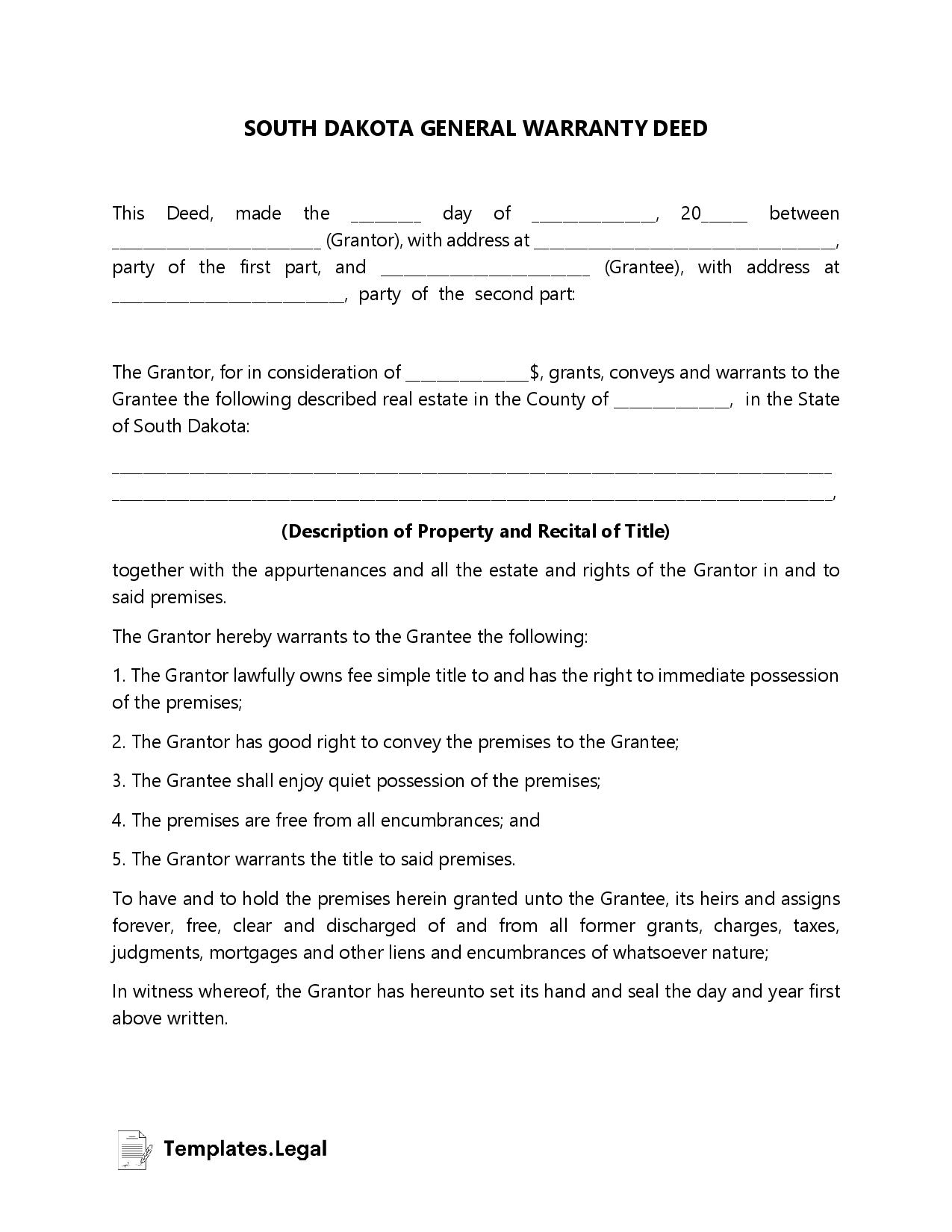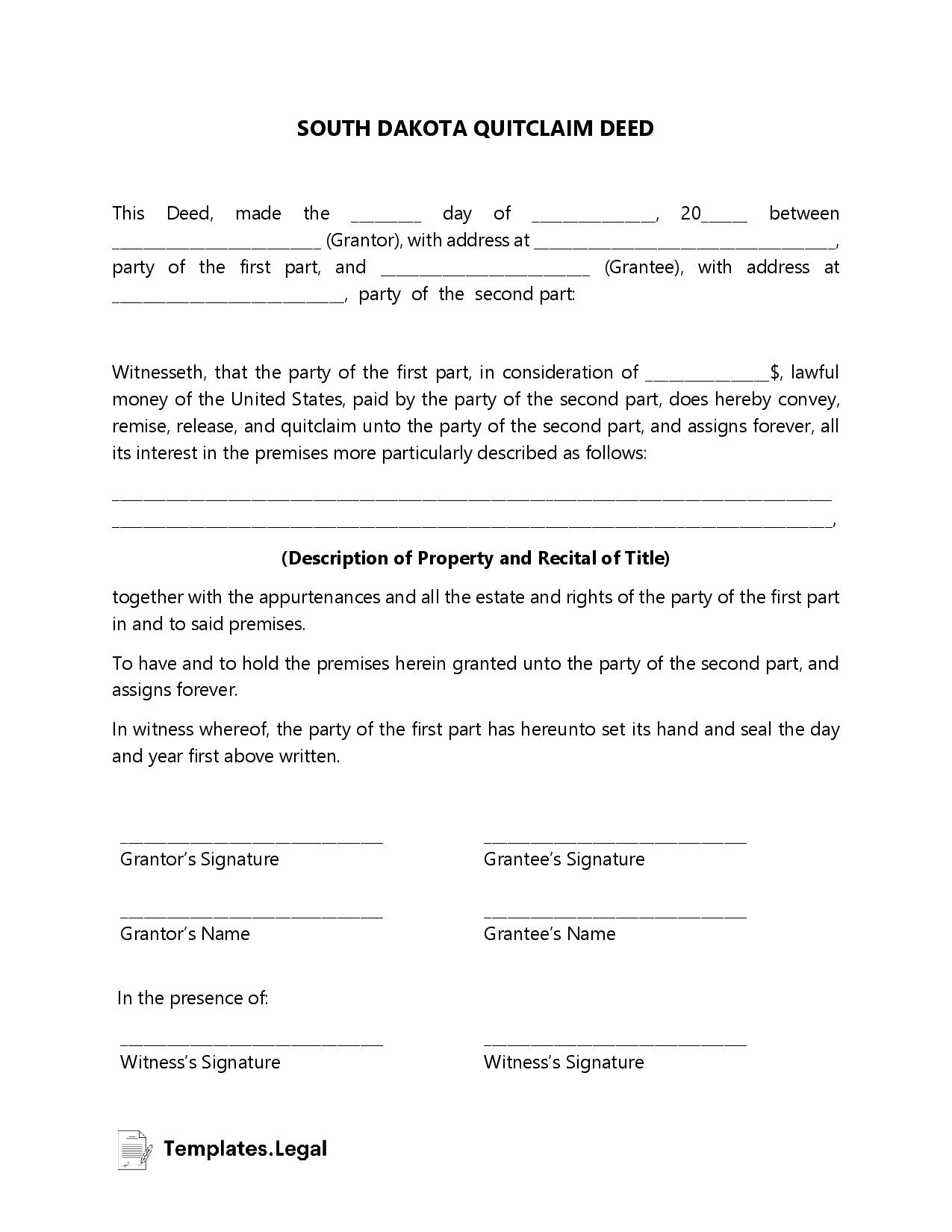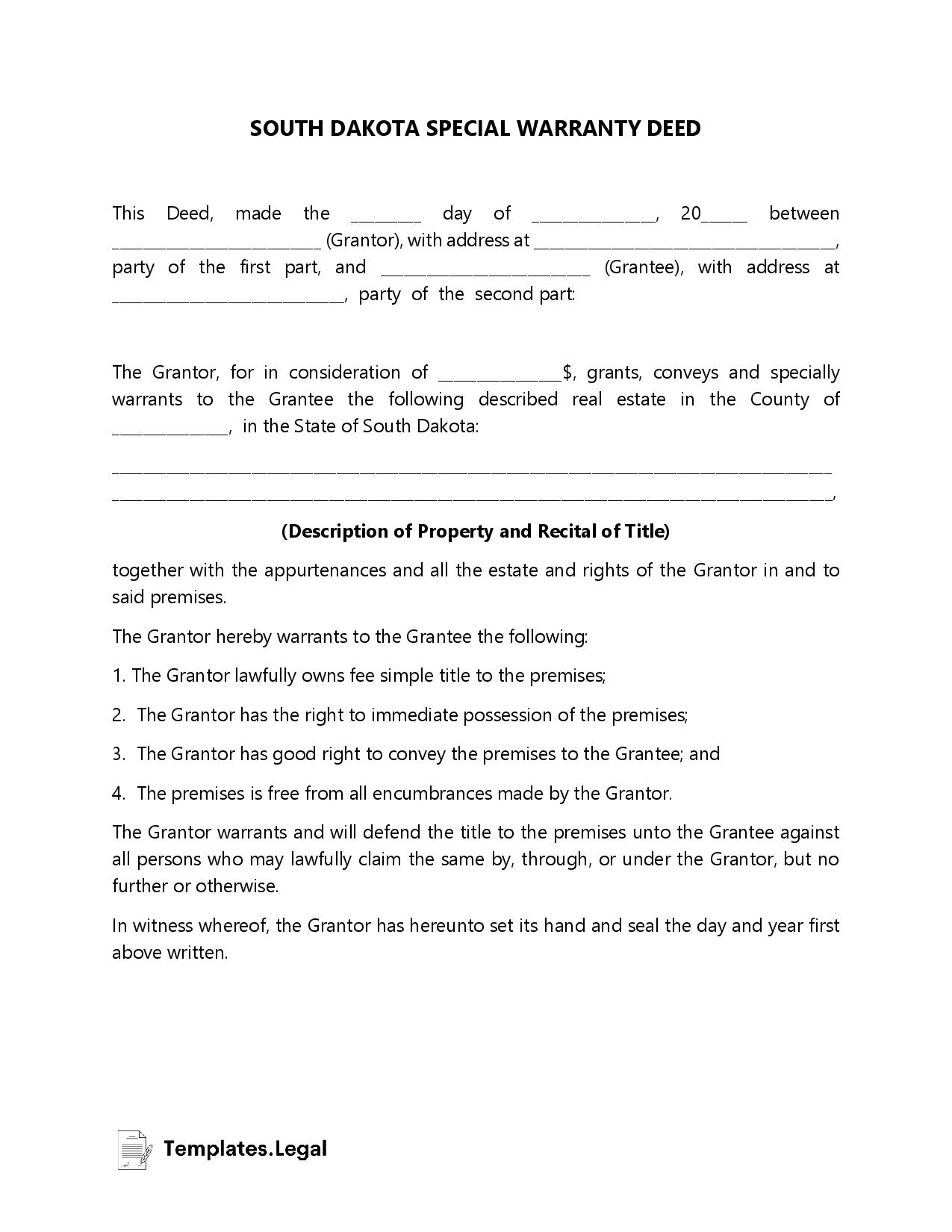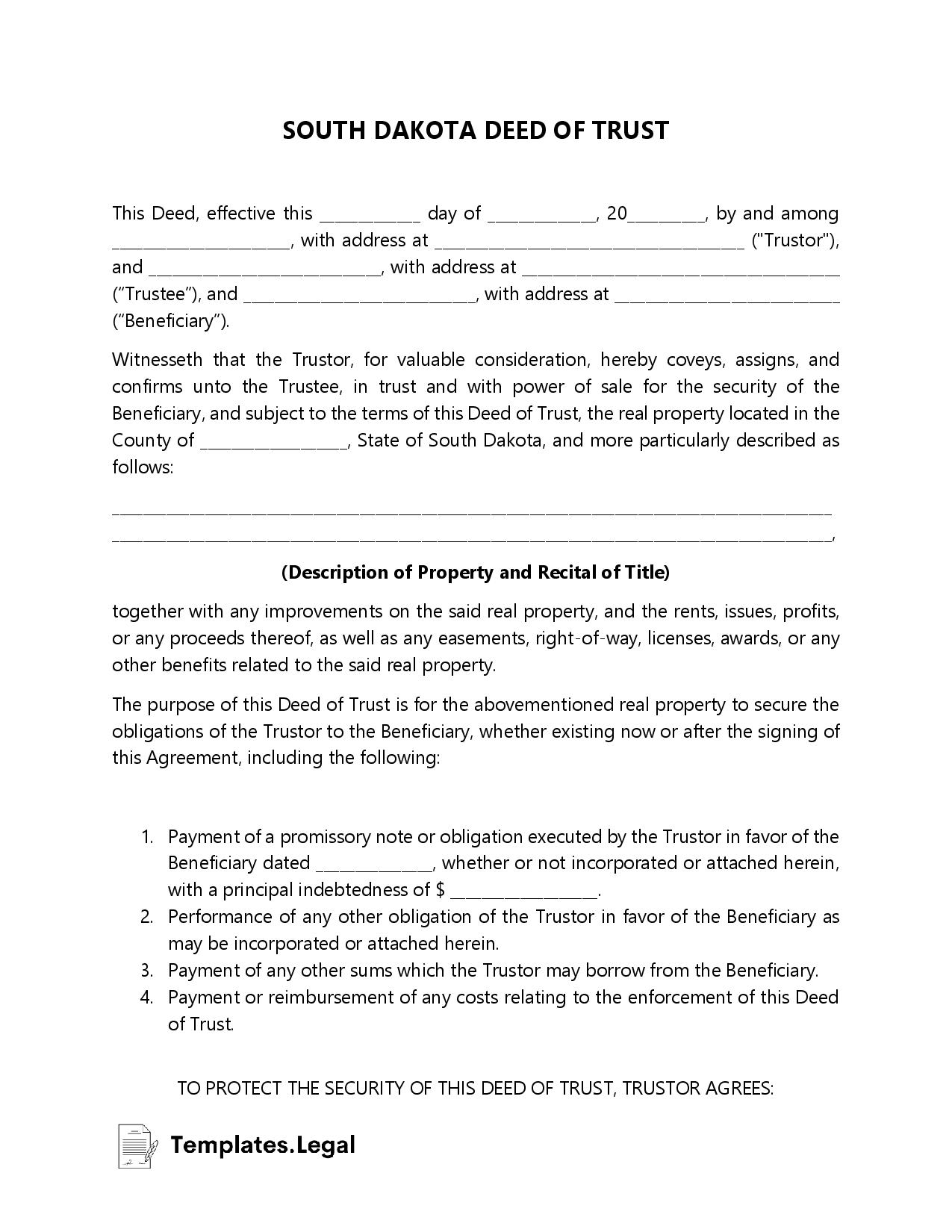South Dakota Deed Forms & Forms
State laws
A South Dakota deed form is used to transfer the title of ownership of a parcel(s) of real estate property from one party to another (Chapters 43-25, Deeds & Conveyances). The deed requires signatures by both parties – the grantor and the grantee. If the grantor’s signature is not acknowledged, it must be proven by a subscribing witness or notary (South Dakota Codified Law 43-25-26).
A completed Certificate of Real Estate Value form (PT 56 form) must also be submitted along with a property deed. In addition to full names and legal addresses of the grantor and grantee, the certificate should include a legal description of the property, the relationship between buyer and seller, and agreed upon payment terms (if full payment is not completed upfront at the time of sale).
To be recorded, the deed must be filed with the Register of Deeds in the county where the property is located. The applicable transfer fee must be paid unless the sale meets one or more criteria from the list of exemptions (SDCL 43-4-22).
South Dakota General Warranty Deed
A South Dakota general warranty deed transfers title and ownership of a real estate property from one party to another (SD CL 43-35-5). The deed “must match the statutory form and contain a statement declaring that the Grantor (seller) grants, conveys, and warrants” property to the Grantee (buyer).
South Dakota law requires signatures on a general warranty deed to be acknowledged or proven by a witness (SD CL 43-25-26). A general warranty deed must also include a completed Certificate of Value when presented for recording with the local county Register of Deeds.
South Dakota Quitclaim Deed
A quitclaim deed is a simpler, less arduous way to quickly transfer ownership. It requires, among other things, the grantor’s signature and an acknowledgment of the signature (SD CL 43-25-7). Like a general warranty deed, it must also be accompanied by a Certificate of Value.
With a quitclaim deed, the grantee is deemed a good faith purchaser unless they have knowledge of prior unrecorded conveyance that affects the title of the property at the time of signing and delivery.
South Dakota Special Warranty Deed
There are no specific statutory forms provided for a special warranty deed since each situation requiring the deed is different. By signing a special warranty deed, the grantor pledges to the grantee that he/she is the rightful, legal owner of a property, without liens, and the grantor will defend any lawful claims or demands on it.
For a transfer to be recorded, special warranty deeds require either the grantor’s signature (or the signature of the authorized agent). Execution must be duly acknowledged as well and the deed must be accompanied by a Certificate of Value.
South Dakota Deed of Trust
A deed of trust is a guarantee between a lender and a borrower with a trustee installed as an intermediary. The deed states that the borrower transfers the property title to the trustee who will hold it until the debt is paid in full to the lender. It must be accompanied by a Certificate of Trust “in support of a real property transaction” (SD CL 55-4-51.3) as part of the Uniform Trusts Act.
The granting trustee’s signature must be acknowledged by a public notary in order to be recorded by the county.




